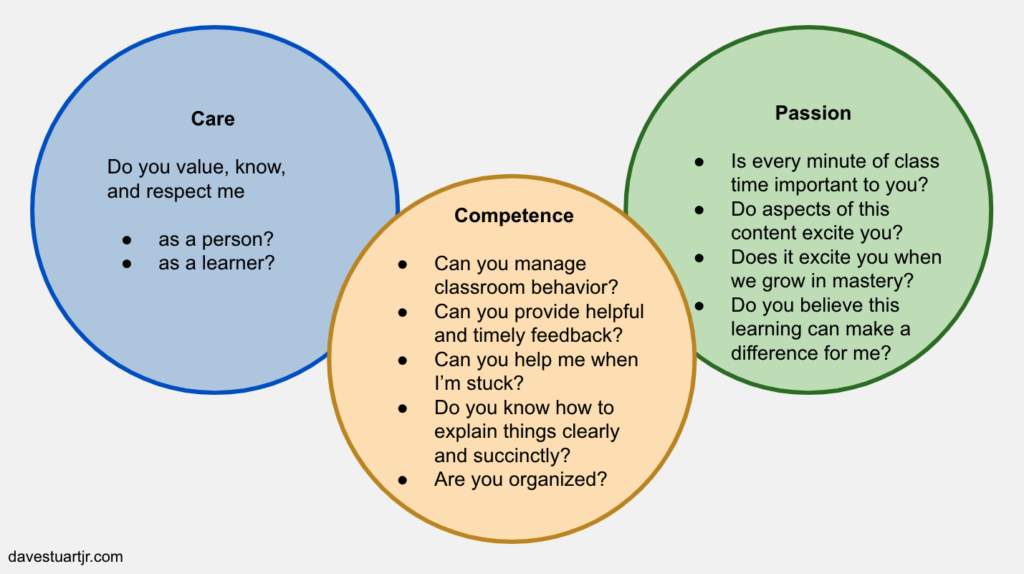Once in a while, it's smart to tell your students a bit of the thinking behind your lessons. Let me give a recent example from my practice and then close by explaining what I think things like this do for credibility.
(For twenty more low-stress ideas for boosting that cred, click here.)
Earlier this week, I asked my ninth grade students to do a pop-up debate (PUD) on the following prompt: What was the most significant motivating factor behind Europe's “scramble for Africa” in the late 19th century? Prior to this PUD, students had built knowledge (Ch 3 of These 6 Things) through the following means:
- Independently read and taken notes for learning on a textbook passage
- As a class, watched and taken notes for learning on a YouTube clip regarding the Scramble for Africa
- Independently read and answered analytical questions regarding a set of six primary source documents related to the Scramble for Africa
- Memorized a few dates related to the scramble (e.g., the Berlin Conference of 1885; the Battle of Adowa of 1896)
- Listened to me explain several times (briefly) about how these ideas fit into some of the key topics for our current unit (Unit = Consequences of Industrialization; Key Topics = Motivations for Imperialism, State Expansion, and Indigenous Responses to Imperialism)
Now that might all sound complicated, but it's really just These 6 Things — lots of knowledge-building, reading, writing, and speaking/listening, on repeat all year long. When you give yourself years of deliberate practice in these few core areas of pedagogy, you end up internalizing them and creating coherent learning experiences — that's kind of the whole thesis of T6T.
Which is all a long way of introducing the “sharing bits o' pedagogy” that I'm writing about today.
So, this is all I did.
After the pop-up debate, I basically said this to students:
Well done! I was especially grateful for some of the specific examples you brought up from our recent readings and such. One reason we do pop-up debates is because they're a great way to solidify our hold on the information we've been learning. It's a form of self-quizzing, which we've talked about lots before. And now, we'll really be done talking for a bit about ideas like social Darwinism and civilizing missions and markets and materials, but keep your eyes open as we move ahead — you're sure to see these pop up all over the place.
Here's what I think things like this do
When we share the why behind our teacher moves, we're hitting on all parts of CCP.

- Do I care about you as students? You bet!
- Do I know a thing or two about teaching? I sure do!
- Is there a fire behind my planning — an urgency to see you grow in mastery? “Totes,” as they say.
So tomorrow, maybe tell your students a bit of your pedagogical why when you're together.
It's a signal worth sending.
Best,
DSJR
Leave a Reply